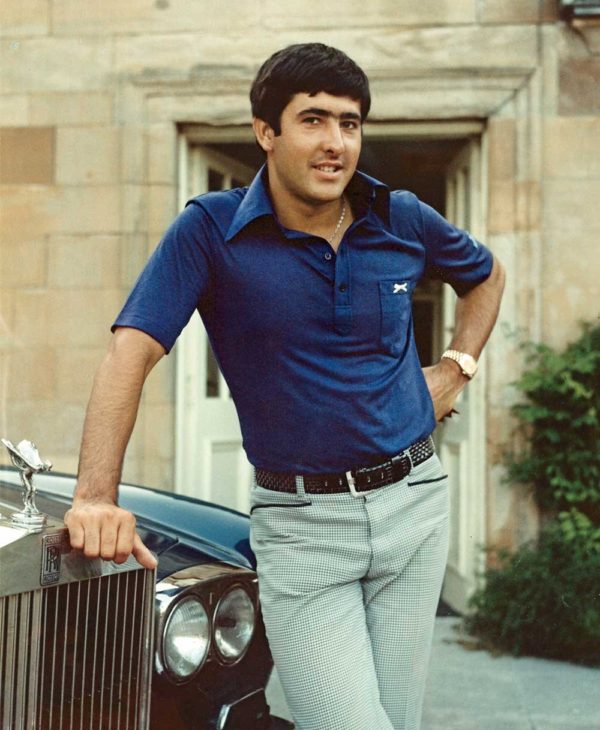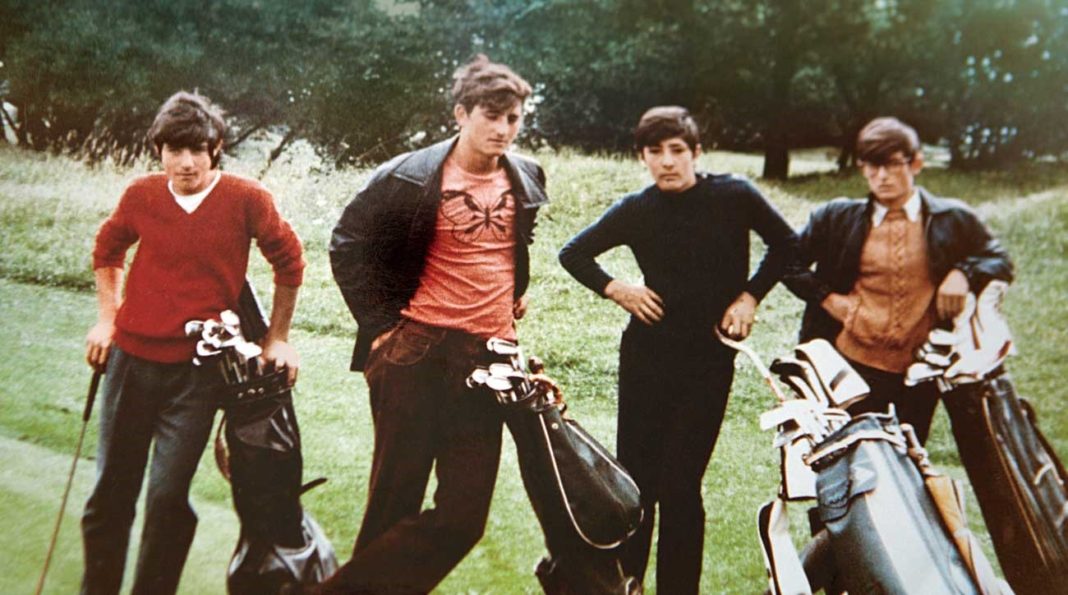
- In Part 2 of Spain late legendary golf star Seve Ballesteros’ career Andrew Atkinson returns to the 1979 Open Championship at Royal Lytham & St Annes and to where it all began in his hometown of Pedreña, in the northern coastal region of Cantabria.
“Severiano Ballesteros was like a racehorse; he loved to have the bit in his mouth and to take off and run. Seve was a great frontrunner, because he played without fear, or so it seemed” – Hale Irwin.
Ballesteros, one of four boys, grew up in the hills above Pedreña, sleeping in a bedroom above livestock stables in a house built by his great-grandparents in the 1880s.
Seve played a role in looking after the family’s 14 milking cows, while his mother, Carmen, ran the household and tended gardens. His father Baldomero fished and worked the land. A simple life.
Pedreña was like the St Andrews of Spain during Seve’s youth. In Pedreña everyone played golf – a pastime in bars – and it became a way of life for him.
Pedreña is situated across the bay from Santander, in waters that evokes San Francisco, where the Spanish Royal family went on vacation at the Palacio de La Magdalena.
King Alfonso XIII was a keen golfer, and ordained a golf course to be designed – for his holidays – at a price. In Pedreña almost 300 small farms, including the one owned by Seve’s maternal grandfather, surrendered their land.
Real Golf Club de Pedreña opened in 1928, with the King serving as an Honorary President. Seve’s home was within driving range of the course, so much so, he hit balls from their sloping front yard down the hill and over a rock wall to the second green!
Seve, aged six, along with his brothers, caddied at the club where the head professional was their maternal uncle Ramón Sota, a player who tied sixth at the 1965 Masters.

In his youth Seve was handed down a 3-iron head and scavenged for sticks, jamming them into the head, prior to soaking the makeshift shaft to swell the wood, to fit tighter within the hosel. The shaft often lasted a couple of days – before snapping.
Caddies were allowed to play Real Pedreña once annually, and Seve took the opportunity with purloined balls, creating his own course. Seve even played in moonlight!
He tied handkerchiefs onto branches and planted them into the ground. Seve repeated the format, making holes in a meadow in the hills, and on the beach near the marina in Pedreña. Seve also ventured to nearby Somo beach, surrounded by scrubby dunes – similar to what he encountered at Royal Lytham.
Seve said: “It was a very strange experience to walk around a golf course at night, because all the reference points that help estimate distances vanished.
“I knew where the shot was heading from the way my hands felt the hit and from the sound the ball made when it hit the ground. By practicing at night I learned to feel the grass under my feet, to measure distances intuitively and adjust the power of the strokes I wanted to make.”
Aged 10, Seve finished second in his flight in Real Pedreña’s caddie tournament. Aged 12 he shot 79, to win.
Dubbed a ‘magician and a special talent’ club stewards allowed Seve unlimited playing privileges.
Seve joined his brother Manuel on the Euro tour in 1974, aged 16, sponsored by a wealthy Madrid physician. In 1976 Seve played in the Open Championship.
In 1979 Seve won the Open Championship – with commentary rallied to Pedreña, via phone. Their own village boy had won the biggest tournament in the world.
The headquarters of the Seve Ballesteros Foundation are in Santander, where the airport is named after him.
In situ in a park in Pedreña a faux-Swilcan Bridge and bronze statue captures Seve’s iconic fist-pump that followed his victorious birdie on the 72nd final hole of the 1984 Open Championship, at the Old Course.
Seve Ballesteros died, aged 54, in 2011, of a cancerous brain tumor. At the family home in Pedreña, Seve’s son Miguel, said: “When we are here it allows us to feel closer to my dad.”
At Real Pedreña’s annual Campeonato de Caddies, Seve, in all black, aged 13. COVER PHOTO: COURTESY THE BALLESTEROS FAMILY





